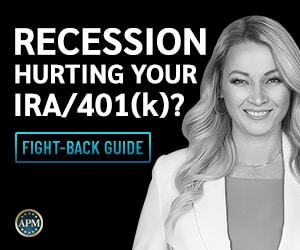Table of Contents
Introduction
In today’s modern world, people are very aware of money matters: investing, savings, or anything else. Saving is definitely an important part of anyone’s financial life. It helps one be ready for any uncertainties that may arise and inspires confidence to overcome those times. One recent example can be the Covid-19 crisis, where a lot of people were rendered jobless. But, many of us tend to get confused when it comes to savings as there are many options available on the market. ISA is one of them. We know that you might have a lot of questions, and we’re going to answer all of them for you. So, let’s start:
So in our article, we’re going to tell you about ISA, when they were introduced, types of ISA’s, and what are the requirements to be eligible to open an ISA; find them out below:
What is an ISA?
An ISA is an Individual Savings Account is a kind of Tax-Free savings account that allows the user to keep the interest accrued during the time period. Unlike a regular savings account, the owners of an ISA are exempted from personal income tax up to a specific limit that may accrue during a certain time period. ISA is popular tax-free savings in the UK.
The ISA’s were introduced in April 1999, which replaced the PEP’s (Personal Equity Plans) and TESSA’s (Tax Exempt Special Savings Account) and were available to the UK citizens over 16 provided that they have a national insurance number. Junior ISA’s were also introduced in 2011 to encourage savings for people below the age of 16.
The biggest difference between an ISA and a normal savings account is that an ISA offers interest payment, which does not attract any taxes, inspiring investors’ confidence that they’re getting more for the money they’ve invested.
Is there a capital gains tax on ISAs?
Profits from shares held in an ISA are not subject to capital gains tax. Any increase in the value of the investments in your stocks and shares ISA are free of Capital Gains Tax. Investors can not use losses made on investments in their ISA stocks to offset capital gains on their other investments.
Are ISAs tax-free?
Yes, ISAs are tax-free and represent excellent investment accounts and tax-efficient savings. Interest, profits from investments, and dividends that you receive from ISA are free of Capital Gains Tax. The tax-free ISA limit is £20,000 for CashISa and for Stocks & Shares ISA.
But what is with income tax:
Do you pay tax on ISA income?
No, you do not pay income tax you receive from Interest, profits from investments, and dividends from and you are free of Capital Gains Tax.
Are ISAs exempt from inheritance tax?
ISAs are not exempt from inheritance tax (IHT). For example, if ISAs are given on your death to your civil partner or surviving spouse ISAs will not be subject to IHT because of the spouse exemption.
| ISA | ISA Age to open | ISA Annual deposit limit | Are Savings at risk? | Withdrawal restrictions | Government bonus? |
|---|---|---|---|---|---|
| Cash ISA | 16+ | £20,000 | No | No | No |
| Stocks & Shares ISA | 18+ | £20,000 | Yes | No | No |
| Lifetime ISA | 18-39 | £4,000 | Depends | Yes | Yes it is 25% |
| IFISA | 18+ | £20,000 | Yes | Depends | No |
| Junior ISA | 0-17 | £9,000 | Depends | Yes | No |
Types of ISA
Cash ISA: A cash ISA is an account on which the investor never pays taxes. One can deposit an amount of over 20,000 Euros. Cash ISA’s are offered by building societies or Banks, but certain investment firms also have the allowance to offer them to an investor.
One should remember that they can open only one ISA per financial year, but they have the option to transfer the money to any other kinds of ISA’s. Like any other Savings account, Cash ISA also come in different kinds which help to provide flexibility to the customer like easy access (one where the customer can withdraw money provided they do it in the same financial year), a regular saver (where the customer gets a fixed rate of interest as long as the customer is depositing a fixed amount every month) or a Fixed one (where the customer gets a fixed rate of interest but the money is locked in for a specific time period)
Stocks and Shares ISA: A stocks and shares ISA, unlike a Cash ISA, helps one invest the money in a range of different qualifying investments such as cash, stocks and investments, bonds, etc., the qualifying limit, however, remains the same at 20,000 euros. Just like a cash ISA, one can only open a single Stocks and Bonds ISA per year. These kinds of ISA’s are suitable for the people ready to risk their investments for a higher (or lower) return rate.
It is also mandatory that the money held in stocks and shares be made available within 30 days to avoid any zero-interest penalty on the funds.
Innovative Finance ISA: Innovative Finance ISA was introduced in April 2016 and, unlike before, was more suitable to be used for peer-to-peer (lenders which are ready to invest in businesses or individuals) lending investments. The financial platforms can only offer innovative finance ISA with an FCA (Financial Conduct Authority) certification.
The financial limit for Innovative Fund ISA stays at 20,000 Euros.
Lifetime ISA: A lifetime ISA is more suitable for individuals looking to invest in the long term. The best thing about these ISA’s is that the person can plan for both retirements and property purchases using these ISA’s. Only a person who is in the age bracket of 18-40 can open a Lifetime ISA. These accounts earn 25% on the contributions of up to 4000 euros of the investor after every financial year. This makes it perfect for people who are looking for something long-term.
As soon as the investor reaches the age of 50, they cannot add any money to these accounts, and the interest bonus is also revoked, but one can withdraw the money either at the time of buying a first home or by reaching the age of 60.
Junior ISA: A junior ISA is an account available to investors who are below the age of 18. These were introduced with a limit of 3600 Euros, further increased to 4368 Euros recently. Junior ISA’s are available in both cash as well as stock and bonds type. Money cannot be withdrawn in a junior ISA unless and until there is a terminal illness claim or a closure of the account after the child’s death. A Junior ISA converts to an adult ISA as soon as the investor turns 18.
Eligibility Criteria for ISA’s:
To open an ISA, an investor should be:
- 16 years or older to open a Cash ISA
- 18 Years or Older to open a Stocks and Shares ISA
- 18 years or older but under the age of 40 to open a Lifetime ISA
- The investor should be a resident of the UK
- A crown servant or their spouse or civil partner
Now that we have a simple Idea about Individual Savings accounts and which one is suitable for you, it’s time for you to save and invest!
So, this was our take on the ever-so-essential individual Savings Account! This seems like a lucrative option to opt for long-term investments. We did our part; you also do your bit! Research, observe and analyze, and get to invest!
























